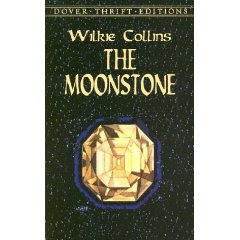The Hound of the Baskervilles by Sir Arthur Conan Doyle
Alright, I have read 4 books so far. Only 2 more to go!! I think I am going to change from my original list. I am replacing North and South for Cranford. (Both Mrs. Gaskell) But on to The Hounds... The people living on the moor are terrified of a ghost hound that is being seen at night. It is running alongside a ghotly carriage. They both glow in the dark, and now people are dying...
The people living on the moor are terrified of a ghost hound that is being seen at night. It is running alongside a ghotly carriage. They both glow in the dark, and now people are dying...
Holmes will get to the bottom of it.
My Thoughts:
Another exciting Holmes mystery. I actually read it before I read Sherlock In Love because I wanted them to be chronological.
It was fun to revisit this story especially after having read The Moor last year.
I love the style of writing and the suspense. Conan Doyle exploits with the paranormal are legendary and I enjoy how they just get hinted at in this story.
The topography and the people of the moor area are fascinating. And a little creepy.
Definitely worth reading. Again!












